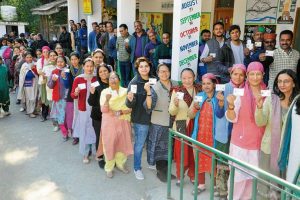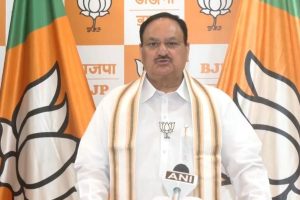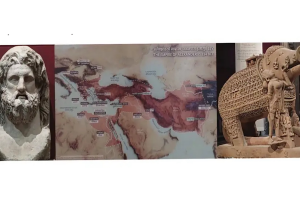Quite the most amazing facet to the Asean conference on the junta-sponsored brutality in Myanmar was the presence of the embattled country’s Senior General Min Aung Hlaing at the high table in Jakarta. If the briefing by Southeast Asian leaders is any indication, the representatives of the regional bloc have agreed on a plan with Myanmar’s junta chief to end the crisis in the country. Viewed through the Asean prism, this indubitably signifies a measure of forward movement although both sides have skirted the core issues in the embattled nation. Nor for that matter did the General respond to demands that the killing of civilian protesters stop. “We tried not to accuse his side too much because we don’t care who’s causing it,” was the Malaysian Prime Minister, Muhyiddin Yassin’s rather unconvincing plea. “We just stressed that the violence must stop. For him, it’s the other side that’s causing the problems. But he agreed that violence must stop.” Asean leaders wanted a commitment from Min Aung Hlaing to restrain his security forces, which an activist monitoring group says have killed 745 people since a mass civil disobedience movement erupted to challenge his coup on 1 February. Another critical demand pertains to the release of political prisoners. There may be hope yet as Min Aung Hlaing “did not reject what was put forward by me and many other colleagues,” Muhyiddin said.
Of considerable significance was the consensus that was reached on five points and suitably highlighted in the statement advanced by the “group chair”, Brunei. Specifically, an end to violence, a constructive dialogue among all parties, a special Asean envoy to facilitate the dialogue, acceptance of aid, and a visit by the envoy to Myanmar. The five-point consensus did not mention political prisoners, although the chairman’s statement said the meeting “heard calls” for their release. “He (Min Aung Hlaing) said he heard us, he would take the point in, which he considered helpful,” was the Singapore Prime Minister, Lee Hsien Loong’s response. “He was not opposed to Asean playing a constructive role, or an Asean delegation visit, or humanitarian assistance.” The subtext is obvious ~ Asean has stopped short of exerting pressure on the Myanmarese junta even at the peak of the crisis. Very pertinently has Lee remarked that the process has a long way to go, “because it is one thing to say you will cease violence and release political prisoners, it is another thing to get it done”. Considering that freedom for prisoners was not one of the points on which consensus was reached, it is not clear why the Prime Minister of Singapore referred to the release of political prisoners. Nor for that matter was there an immediate comment from Min Aung Hlaing. Nonetheless, an essay towards a consensus is welcome. While Asean’s policy of noninterference makes it difficult to tackle contentious issues, the entity is regarded by the United Nations, China and the United States as best placed to deal with the junta directly. A consensus is not a halfway house.











